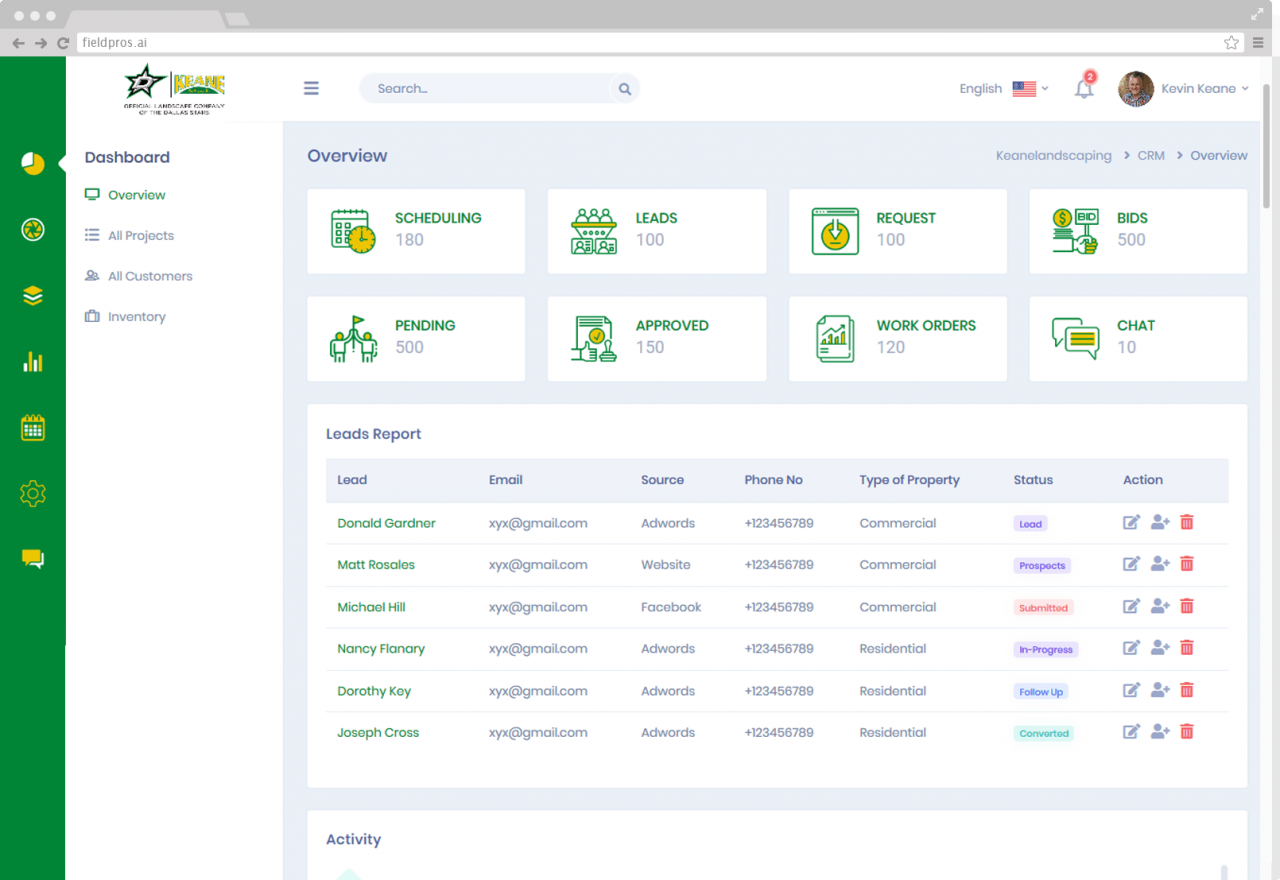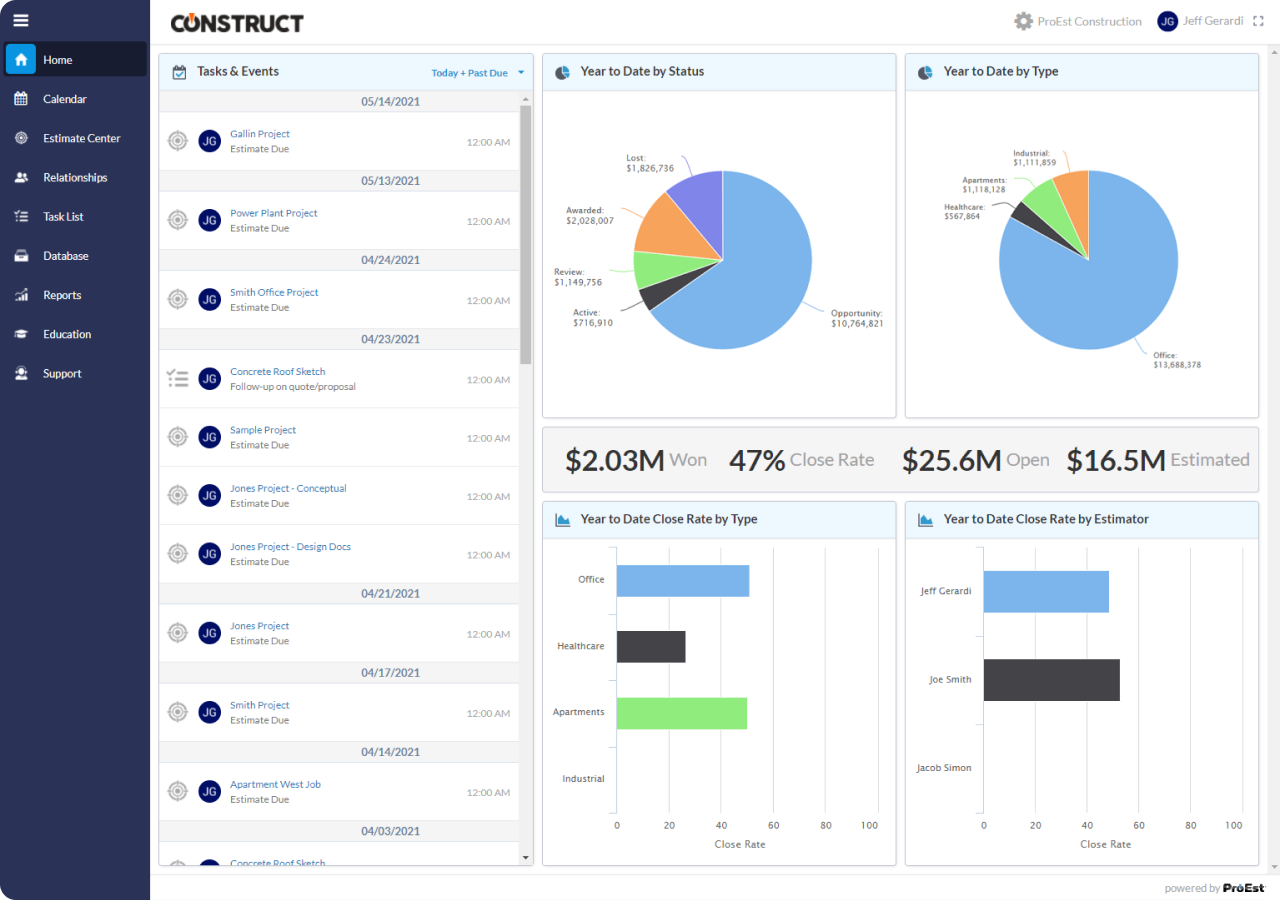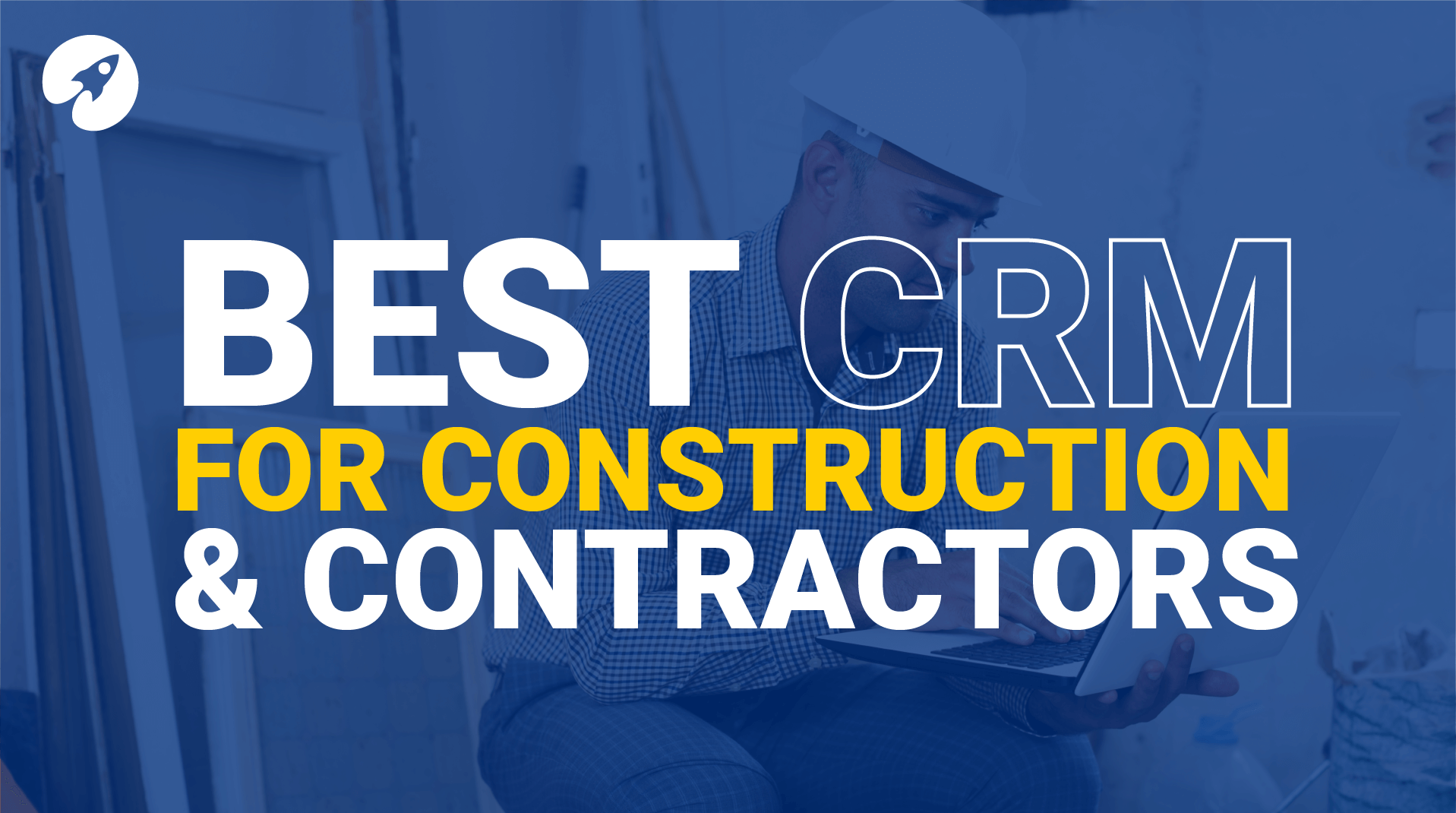Embark on a transformative journey with CRM for construction, a game-changing tool designed to streamline operations, enhance customer experiences, and drive success in the competitive construction industry.
With a CRM specifically tailored to the unique challenges of construction companies, you can harness the power of technology to foster lasting customer relationships and elevate your business to new heights.
Benefits of Implementing a Construction CRM: Crm For Construction

A Construction CRM (Customer Relationship Management) system streamlines and automates many business processes, leading to significant benefits for construction companies. These benefits include increased efficiency, improved customer satisfaction, and increased profitability.
Quantifying the ROI
The potential return on investment (ROI) for construction companies that implement a CRM is significant. A study by the Aberdeen Group found that companies that implemented a CRM system saw an average increase in sales of 23%, an average increase in customer satisfaction of 18%, and an average decrease in operating costs of 15%.
Case Studies and Testimonials
Many construction companies have successfully implemented CRM systems and experienced significant benefits. Here are a few examples:
- A large construction company implemented a CRM system and saw a 20% increase in sales within the first year. The company attributed the increase in sales to the improved customer relationship management capabilities of the CRM system.
- A medium-sized construction company implemented a CRM system and saw a 15% decrease in operating costs within the first year. The company attributed the decrease in operating costs to the improved efficiency of the CRM system.
- A small construction company implemented a CRM system and saw a 10% increase in customer satisfaction within the first year. The company attributed the increase in customer satisfaction to the improved communication and responsiveness of the CRM system.
Considerations for Choosing a Construction CRM
When selecting a CRM, construction companies should consider several key factors:
Scalability:The CRM should be able to grow with the company, accommodating an increasing number of users, projects, and data. Ease of use:The CRM should be user-friendly and intuitive, allowing users to quickly learn and adopt the system. Integration with other systems:The CRM should integrate seamlessly with other software systems used by the company, such as accounting, project management, and customer relationship management (CRM) systems.
Vendor Comparison, Crm for construction
The following table compares different CRM vendors based on these criteria:
| Vendor | Scalability | Ease of Use | Integration with Other Systems |
|---|---|---|---|
| Salesforce | Excellent | Good | Excellent |
| Microsoft Dynamics 365 | Excellent | Good | Good |
| Oracle NetSuite | Good | Fair | Excellent |
| Sage CRM | Good | Good | Fair |
| Zoho CRM | Good | Excellent | Good |
Best Practices for Implementing a Construction CRM

Successfully implementing a CRM for construction requires careful planning and execution. By following best practices, construction companies can maximize the benefits of their CRM and streamline their operations.
The implementation process typically involves several key steps, including data migration, user training, and ongoing maintenance. Here’s a checklist and timeline to help guide your CRM implementation:
Data Migration
- Identify all relevant data sources and determine the best approach for migration.
- Establish data quality standards and ensure data accuracy and consistency.
- Develop a migration plan and timeline to minimize disruptions.
- Test the migrated data thoroughly before going live.
User Training
- Provide comprehensive training on CRM functionality and best practices.
- Develop user guides and resources for ongoing reference.
- Encourage user adoption and feedback to ensure successful implementation.
- Offer ongoing training and support to address any challenges or questions.
Ongoing Maintenance
- Regularly update and maintain the CRM to ensure optimal performance.
- Monitor usage and performance to identify areas for improvement.
- Seek feedback from users and make adjustments based on their needs.
- Stay informed about industry best practices and new CRM features.
Emerging Trends in Construction CRM

The construction industry is undergoing a digital transformation, and customer relationship management (CRM) is at the forefront of this change. Emerging technologies and trends are shaping the future of CRM for construction, and these trends will have a significant impact on the way construction companies manage customer relationships.
Artificial Intelligence (AI)
AI is being used to automate many tasks in the construction industry, from project management to customer service. AI-powered CRM systems can help construction companies improve their customer service by providing personalized experiences, automating tasks, and predicting customer needs.
Virtual Reality (VR) and Augmented Reality (AR)
VR and AR are being used to create immersive experiences for customers. Construction companies can use VR and AR to give customers virtual tours of projects, show them how products will look in their homes, and provide training on new equipment.
Blockchain
Blockchain is a distributed ledger technology that is being used to improve transparency and accountability in the construction industry. Blockchain-based CRM systems can help construction companies track project progress, manage contracts, and resolve disputes.
Mobile CRM
Mobile CRM is becoming increasingly important as more and more construction professionals are using mobile devices to manage their work. Mobile CRM systems allow construction companies to access customer information, track project progress, and manage tasks from anywhere.
Cloud-Based CRM
Cloud-based CRM systems are becoming increasingly popular because they offer a number of benefits, including scalability, flexibility, and cost-effectiveness. Cloud-based CRM systems can help construction companies improve their customer service, manage their projects, and grow their businesses.
Final Thoughts

In the ever-evolving construction landscape, CRM emerges as an indispensable asset, empowering companies to navigate complex projects, nurture customer loyalty, and stay ahead of the curve. By embracing the transformative potential of CRM, construction businesses unlock a world of opportunities to enhance their operations, drive growth, and build a solid foundation for the future.
Commonly Asked Questions
What are the key benefits of implementing a CRM for construction?
CRM for construction offers a multitude of benefits, including streamlined project management, improved lead tracking, enhanced document management, increased customer satisfaction, and a substantial return on investment.
How can CRM help construction companies manage complex projects?
CRM provides a centralized platform to manage all project-related information, enabling seamless collaboration, efficient task tracking, and timely completion of projects.
What are the essential features to look for in a construction CRM?
When selecting a construction CRM, consider features such as project management capabilities, lead tracking functionality, document management tools, customizable dashboards, and mobile accessibility.
